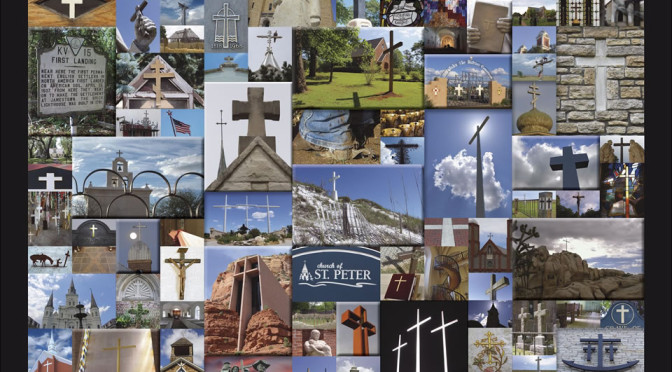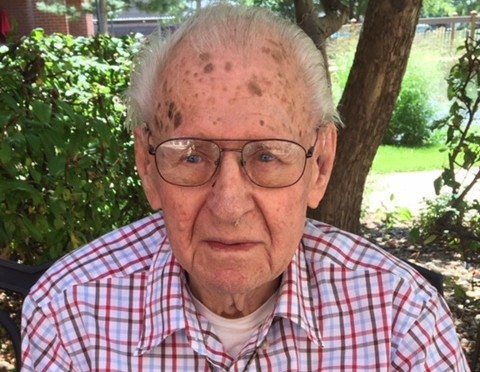Caitlin Trussell with Augustana Lutheran Church on March 30, 2018
Good Friday
[sermon begins after Bible reading; when you get a chance read the whole of John 18 and 19. It’s worth it.]
John 19.16-18 and 25b-30 and 40-42
Then Pilate handed Jesus over to them to be crucified. So they took Jesus; 17and carrying the cross by himself, he went out to what is called The Place of the Skull, which in Hebrew* is called Golgotha.18There they crucified him, and with him two others, one on either side, with Jesus between them.
25b Meanwhile, standing near the cross of Jesus were his mother, and his mother’s sister, Mary the wife of Clopas, and Mary Magdalene. 26When Jesus saw his mother and the disciple whom he loved standing beside her, he said to his mother, ‘Woman, here is your son.’ 27Then he said to the disciple, ‘Here is your mother.’ And from that hour the disciple took her into his own home. 28 After this, when Jesus knew that all was now finished, he said (in order to fulfil the scripture), ‘I am thirsty.’ 29A jar full of sour wine was standing there. So they put a sponge full of the wine on a branch of hyssop and held it to his mouth. 30When Jesus had received the wine, he said, ‘It is finished.’ Then he bowed his head and gave up his spirit.
40They took the body of Jesus and wrapped it with the spices in linen cloths, according to the burial custom of the Jews. 41Now there was a garden in the place where he was crucified, and in the garden there was a new tomb in which no one had ever been laid. 42And so, because it was the Jewish day of Preparation, and the tomb was nearby, they laid Jesus there.
Good Friday takes us deep. Frailty, self-absorption, and pain repeatedly clash with the power of grace in the moments leading up to the crucifixion. Some theologians will say that each one of us holds the hammer that drove the nails through the hands and feet of God. That theology seems a bit overwrought to me, not to mention impossible on the time-space continuum. What does resonate is that we can’t handle the grace. (Yes, I’m invoking Jack Nicholson’s line delivery in A Few Good Men).
Grace is a handy, go-to word because it means a lot things all at once. Grace means God’s unconditional love, forgiveness, and redemption. Grace means that we are created in the image of God. And grace means so much more. When I say we can’t handle the grace, I mean that when confronted with the grace of God in Jesus we would and do reject its fullness. We reject it time and again for ourselves and other people. We put grace to death. Think about the ways you keep beating yourself up over past actions as if you’re beyond God’s redemption. Think about the ways you decide that other people are undeserving. Think about the way you nurse that grudge that holds you captive to anger and resentment. There are many situations in our lives that beg the question, “Do we believe in grace or don’t we?”
We tend to draw a line around where God’s redemption by grace is possible. Lent pushed us through those lines over the brink into Good Friday when we confess by faith that God hung dead on a cross – the cross being the ultimate moment of our human determination to reject grace. And what does God do? Well, I’ll tell you what God doesn’t do. There is not a hand lifted against the people who see fit to hang Jesus on that cross. From the people most directly involved who organized the murderous scheme to the disciples, Jesus’ friends, who couldn’t stop it, all of them were unscathed, retribution not even a thing. In fact, in the Bible reading from the Gospel of John, we hear that from the cross, there came yet one more grace before Jesus died. Listen again…
“When Jesus saw his mother and the disciple whom he loved standing beside her, he said to his mother, ‘Woman, here is your son.’ Then he said to the disciple, ‘Here is your mother.’”[1]
Jesus uses his last breaths to reorient his mother and the disciple’s relationship with each other. Everything that led to his crucifixion – healing the sick, exorcising demons, welcoming sinners, feeding the hungry, challenging corruption, naming greed – everything Jesus did that hung him there is continuous with the conversation he’s having with his mother and his friend. He gets in one more grace before he announces, “It is finished.”[2] He reconciles his friend and his mother to each other even as he’s reconciling the world with God. We confess this very thing by faith with the words of the Apostle Paul and say in the way only Paul can say it that, “…in Christ God was reconciling the world to himself, not counting their trespasses against them, and entrusting the message of reconciliation to us.”[3]
On Good Friday we are asked several things but one of the things we are not asked is whether or not we’re sinners. The truth of our capacity for self-absorption, dehumanizing violence, denial, running away when times get hard, watching bad things happen from a distance, and not getting involved, is more than evident. Telling the truth of our sin is like giving air to a wound that needs healing. We don’t fool anyone with our “I’m a good person” routines. Thank God the “good person” thing isn’t even a thing.[4] Here’s why it’s not a thing. God is NOT in the sin accounting business. God is in the covenant business. What’s the difference? The cross as covenant pulls the truth of ourselves into the hands of the one who opens his arms to all as he is crucified. God does the heavy lifting of cross-beams and reconciliation to set us free into God and toward each other.
God is in the covenant business. Yet there’s this tendency to act as if Jesus is going to resurrect from the nastiness of the cross in an incredibly bad mood and start hurting the very world God professes to love. God is reduced to a capricious, malevolent taskmaster who requires appeasement. My friends, we reduce God to the worst of ourselves.
Thank God that the power of God is not diverted by our lack of will, our misguided distortions, or our inability to comprehend the relentless force of grace. Today we are simultaneously convicted and set free. Today our trespasses are not counted against us. Today God’s covenant is sealed, finished on a cross. Today is Friday. Let’s call it Good. Amen.
___________________________________________________
[1] John 19:26
[2] John 19:30
[3] 2 Corinthians 5:19
[4] Nadia Bolz-Weber. “Forgiveness.” The Nantucket Project, 2018. https://www.youtube.com/watch?v=T9RTvRhXATo

![We Can’t Handle the Grace, A Sermon for Good Friday [John 19.16-18 and 25b-30 and 40-42]](https://caitlintrussell.org/wp-content/uploads/2018/03/Crucifixion.Georges-Rouault.Le-Christ-en-Cross.1936.Collection-of-Saint-Marys-Museum-of-Art.Gift-of-the-Stricker-family.Sermon-Caitlin-Trusselljpg1-447x372.jpg)

![Jesus: Superhero? Antihero? Neither? [John 3:14-21]](https://caitlintrussell.org/wp-content/uploads/2018/03/wonderwoman-movie-kneeling-1000419-1280x0-672x372.jpg)
